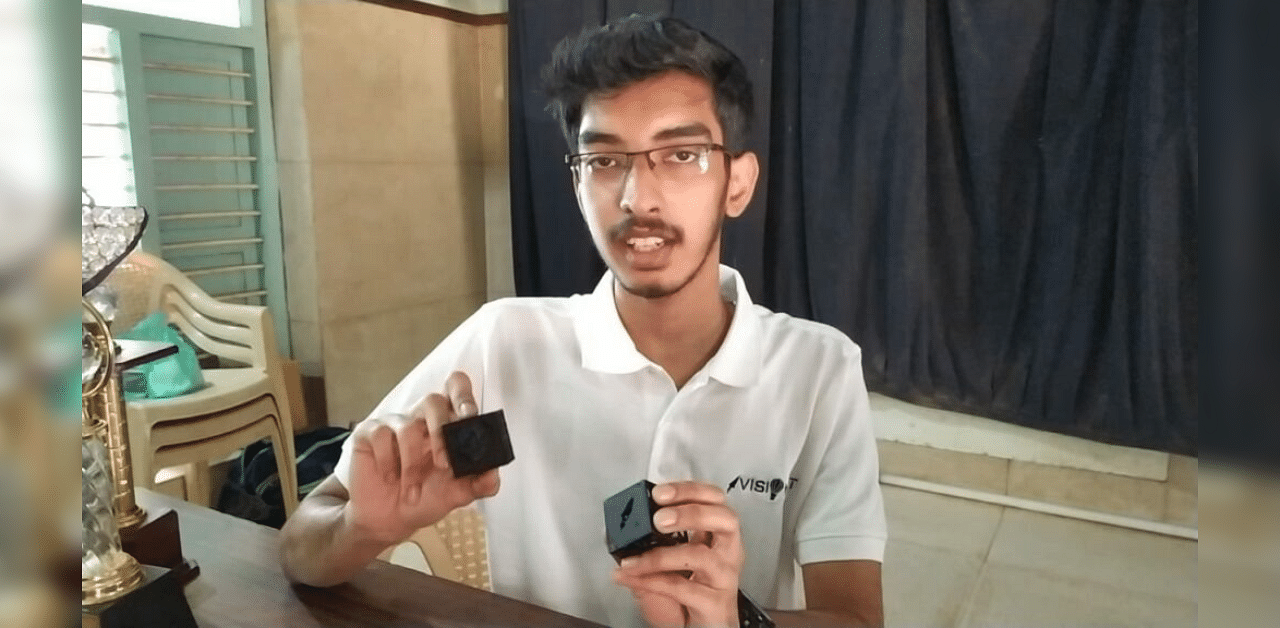
Two years of hard work by 18-year-old S Riyasdeen has finally borne fruit. The second-year mechatronics engineering student has built the world's lightest FEMTO satellite weighing just 33 grams, which will be launched by the US' National Aeronautics and Space Administration ( NASA ) in 2021.
Riyasdeen, a student of the SASTRA Deemed University in Thanjavur in Tamil Nadu, won the Cubes in Space global design competition conducted by NASA. The 37-mm technology-experimental satellites - VISION SAT V1 and V2 — designed by him weigh just 33 grams and are the world's lightest FEMTO satellites.
Cubes in Space, a program by idoodlEdu Inc., is a global competition offered at no cost for students to design and propose experiments to launch into space on a NASA sounding rocket and zero-pressure scientific balloon.
Before this, the world's lightest satellite weighed 64 grams. Mentored by INRO Labs in Chennai, the satellites are designed to record around 17 parameters with 11 sensors. While VISION SAT V1 will be launched from Wallops Flight Facility in Virginia in June 2021, VISION SAT V2 will be part of the NASA Balloon Mission RB-6 scheduled for launch in August.
“My interest in robotics and technology dates back to my school days. To be honest, I began designing the two satellites when was in my 12th standard. The complete research, analysis and development took two years for me. INRO labs helped me in applying for the competition,” Riyasdeen told Deccan Herald from Thanjavur.
The satellites have been designed for microgravity material research and atmospheric space observation or studies, he added. The satellite, which looks like a rectangular box, has been made of polyetherimide thermoplastic resins and 3D printing technology. "I used the said materials because they can withstand the space conditions and these are technology-experiment satellites," Riyasdeen added.
S Vaidhyasubramaniam of SASTRA Deemed University took to Twitter to announce that SASTRA-TBI in 3D Printing and Internet of Things (IoT) will offer an incubation grant of Rs 5 Lakhs to Riyasdeen to fulfill his dream of successful a successful start-up.
Congratulations are also poured in for Riyasdeen from Chief Minister Edappadi K Palaniswami, his deputy O Panneerselvam, Union Finance Minister Nirmala Sitharaman, Opposition Leader MK Stalin, and others.